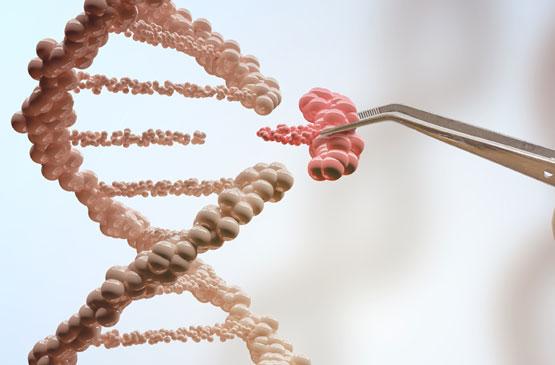Week 6: BioTech + Art
This week’s topic focused on the use of biotechnology to create art. This subject is very controversial, since it raises the question of whether genetically modifying organisms are ethical (Vesna). In my opinion, there are certain benefits of doing so, but also a line that needs to be set as a limit is needed.
For some background, genetically modified organisms are living organisms that have had their genetic material modified artificially (The Non-GMO Project). This is usually done in a laboratory, by humans, and something that does not happen in nature. When thinking about whether or not there is a benefit of doing this, we can look at the example of genetically modified crops. By altering the genetic sequence of crops, there are a number of benefits that humans can reap that are not present in organic crops (Bridges).
Works Cited
Bridges, Meagan. “Genetically Engineered Foods: Medlineplus Medical Encyclopedia.” MedlinePlus, U.S. National Library of Medicine, 20 Aug. 2020, https://medlineplus.gov/ency/article/002432.htm.
“GMO Facts - the Non-GMO Project.” The Non-GMO Project - Everyone Deserves an Informed Choice, The Non-GMO Project., 24 Sept. 2021, https://www.nongmoproject.org/gmo-facts/#:~:text=Genetically%20modified%20organisms%20(GMOs)%20are,or%20through%20traditional%20crossbreeding%20methods.
“Is It Ethical to Genetically Modify Farm Animals for Agriculture?” Yourgenome, The Public Engagement Team at the Wellcome Genome Campus, 21 July 2021, https://www.yourgenome.org/debates/is-it-ethical-to-genetically-modify-farm-animals-for-agriculture#:~:text=The%20transfer%20of%20genetic%20material,engineered%20animals%2C%20and%20even%20humans.
Krämer, Katrina. “Study Claiming Gene-Edited Babies Were More Likely to Die Young Was Wrong.” Chemistry World, Chemistry World, 15 Nov. 2019, https://www.chemistryworld.com/news/study-claiming-gene-edited-babies-were-more-likely-to-die-young-was-wrong/4010546.article.
Rinkesh, Kukreja. “Pros and Cons of Genetically Modified Organisms (GMO's).” Conserve Energy Future, Conserve Energy Future, 6 Nov. 2020, https://www.conserve-energy-future.com/pros-cons-gmos.php.
Vesna, Victoria, director. 5 Bioart pt1 1280x720, YouTube, 18 Sept. 2013, https://www.youtube.com/watch?v=PaThVnA1kyg&t=159s. Accessed 3 May 2022.



Hi Vivek,
ReplyDeleteYour post was really insightful! I like how you began by explaining the pros of GMO's, and how they can actually be helpful for a multitude of different reasons. Your explanation of GMO's and animal experimentation was both informative and persuasive. I agree that experimenting on animals is really disheartening, as they do not have the ability to speak out about being in pain or even consent to procedures that are conducted on them. They deserve to be treated with respect and kindness just as much as humans are, which is why it's truly sad to see that some individuals and corporations continue to experiment with them. Additionally, I never knew that experiments were done on human embryos, which is a little scary to think about. I think this begs the question of where scientists should draw the line, as I feel we may be stepping into dangerous territory.
Hi Vivek,
ReplyDeleteI found your post very informative. You showed the pros and cons of genetically modifying organisms very fairly. You demonstrated that they can be helpful in making foods more nutritious or robust, while also mentioning how sometimes these procedures are unethical and can be harmful. Some may argue that you have to break a few eggs to make an omelet, but I believe that no end is worth creating an organism that is born to suffer.
Hi,
ReplyDeleteI really liked how you started right out of the gate talking about ethics. I feel like its so important to include ethical conversations whenever the conversation moves towards genetic modifications. I really like how you went into detail about GMOs because I feel like its a genetically modified object that is used nationwide daily. With current times revolving around health there is a larger group of people who are aware of GMO results, but its always really good to spread awareness.
Hi Vivek,
ReplyDeleteI really liked how you gave some background knowledge before diving deep into your discussion post. I also enjoyed reading about the pros and cons of using GMO, I think your post was very informative, facts were used to discuss each point. Bio Art is a very controversial topic however I do believe in some cases Bio Art can be justified where as in others it is deem unethical.
Hey Vivek,
ReplyDeleteI agree there is much controversy about altering the nature of organisms and it raises questions about ethicality. I also think that it is justifiable to experiment on plants, but as long as the experimenting does not affect the species on a population level. I learned in a different class that there once used to be a variety of banana types (like other fruits have), but after experimenting on them, they ended up making all bananas clones of each other and the diversity of bananas ceased. Now that all bananas have identical genetic material, it is impossible to get these other varieties back. With that said, I think it is okay to modify plants/species as long as it is controlled.
Best,
Samantha
Hello, I found your statement that we need limits set in modifying living organisms. It is crazy to think about how humans are able to actually edit the genetic code in order to cause change in DNA expression. I also agree that GMO foods are justifiable. I think your argument that genetically modifying animals can breed new diseases is quite agreeable and a reason to justify limits.
ReplyDelete